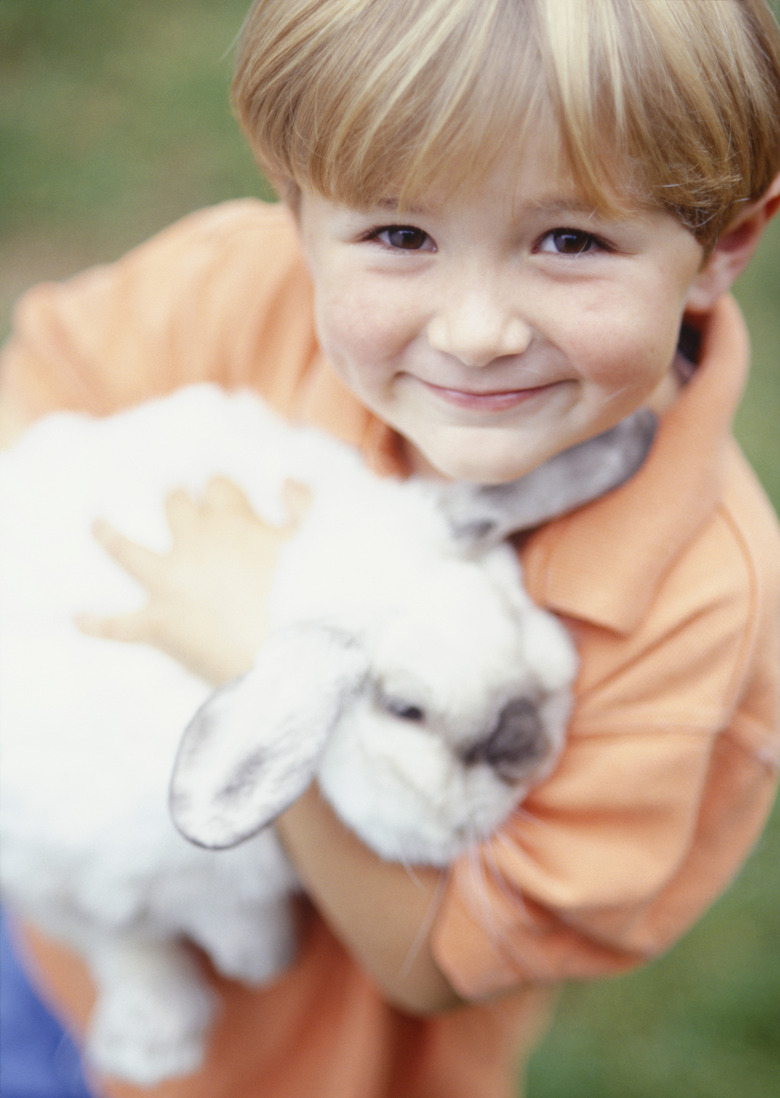How To Treat A Rabbit Bite
Typically, you can treat a rabbit bite by applying standard first aid care. A rabbit bite does not normally present a significant health hazard. It can be an unpleasant experience, undoubtedly, but it's inevitable: Biting and nipping are part of a rabbit's natural means of communication. If you have a rabbit who is biting regularly, you need to figure out what behavior or situations are prompting this response.
Treating Rabbit Bites
Treating Rabbit Bites
If you have been bitten by your rabbit, inspect the wound carefully. If the wound is shallow, you can simply wash the wound thoroughly with soap and water. After you clean the wound, apply an antibiotic cream to it and then bandage the area. If the wound is deep, bleeds profusely or shows signs of infection, call your doctor and seek treatment. If there is any chance that the rabbit has rabies or any other disease, go to an emergency room immediately. It is also recommended that you get a tetanus booster if the wound is significant and it has been more than five years since you last received a tetanus shot.
The Difference Between Biting and Nipping
The Difference Between Biting and Nipping
Rabbits bite, and they nip. Nipping is a gesture primarily used for communication by rabbits.
Nips are not intended to create any significant amount of pain; to you they may feel more or less like a pinch. Nips do not normally draw blood. Rabbits often nip one another to convey dominance, mild displeasure or minor annoyance.
Biting is a more forceful gesture that occurs when a rabbit opens his teeth wide and clamps down on a person or animal. The bite will leave two marks that are roughly an inch apart from one another. Bites typically break through the skin and may draw blood. Bites can occur for an assortment of reasons, such as when the rabbit feels frightened or threatened, or is trying to protect himself or his environment.
Nonaggressive Reasons Rabbits Bite
Nonaggressive Reasons Rabbits Bite
Biting can occur for a variety of reasons, and most of those reasons are not the result of aggression. It is normal for a rabbit to bite his partner on the back of the neck during mating, for instance. Biting during mating is not an aggressive gesture. Rabbits use their teeth as a means of holding onto their mates during mating. Young rabbits may attempt to mate humans, other pets or inanimate objects. If this occurs, your rabbit may bite whatever he is attempting to mount as a way of improving his grip.
Rabbits can also bite due to poor eyesight. If something smells like food, your rabbit may assume that the item is food and bite down on it. Some rabbits bite or nibble because they are curious about the items around them and are attempting to figure out what those items may be. Others may bite when they become nervous or afraid.
Aggressive Biting
Aggressive Biting
Aggressive biting can be a problem for a rabbit owner. Aggressive biting is likely to occur when a rabbit is feeling territorial, possessive or protective. Some rabbits may bite if they do not want the items within their cage disturbed or because they feel threatened by a newcomer. Biting and fighting may occur when you are introducing two rabbits to one another or among rabbits who are sharing the same resources. Rabbits who have not been spayed or neutered may be more territorial than those who have been fixed.
You can correct most aggressive behavior with time, patience and proper handling.
